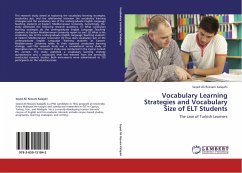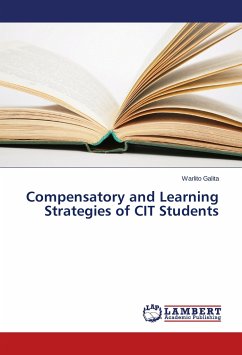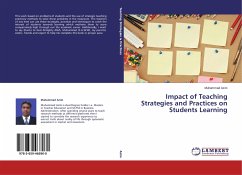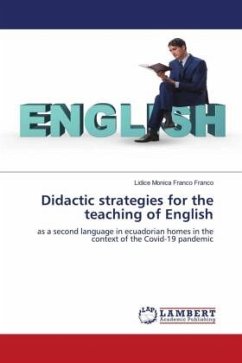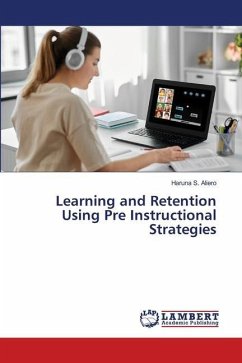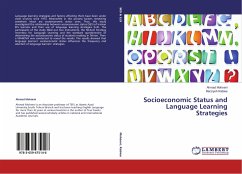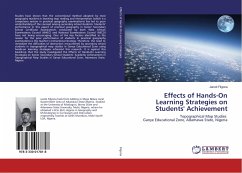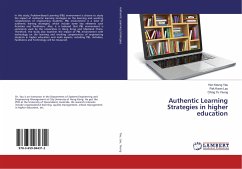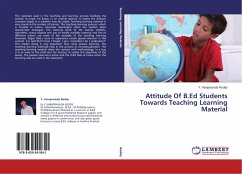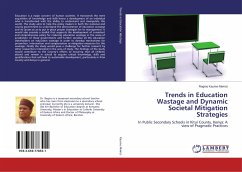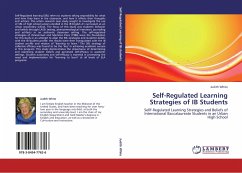
Self-Regulated Learning Strategies of IB Students
Sellf-Regulated Learning Strategies and Beliefs of International Baccalaureate Students in an Urban High School
Versandkostenfrei!
Versandfertig in 6-10 Tagen
45,99 €
inkl. MwSt.

PAYBACK Punkte
23 °P sammeln!
Self-Regulated learning (SRL) refers to students taking respnsibility for what and how they learn in the classroom, and how it affects their thoughts and actions. This action research case study sought to investigate the use of SRL of high school juniors enrolled in the IB English A1 curriculum at an urban sescondary school. The focus of this study was students' behavior and beliefs through LASSI testing, phenomenological interviews, journaling and artifacts in an authentic classroom setting. The self-regulated strategies of Zimmerman and Martinez -Pons (1986) were the foundation for this stud...
Self-Regulated learning (SRL) refers to students taking respnsibility for what and how they learn in the classroom, and how it affects their thoughts and actions. This action research case study sought to investigate the use of SRL of high school juniors enrolled in the IB English A1 curriculum at an urban sescondary school. The focus of this study was students' behavior and beliefs through LASSI testing, phenomenological interviews, journaling and artifacts in an authentic classroom setting. The self-regulated strategies of Zimmerman and Martinez -Pons (1986) were the foundation for this study in an attempt to align the SRL strategies and students' beliefs with the IB student profile: the results were then triangulated with the IB student profile and mission of "learning to learn." The SRL strategy of collective efficacy was found to be the "key" in achieving academic success in this program. This study demonstrates the importance of determining and examining student beliefs andperceived self-efficacy in academic settings. Student autonomy and self-efficacy is essential in promoting the need and implementation for "learning to learn" at all levels of ELA programs.



